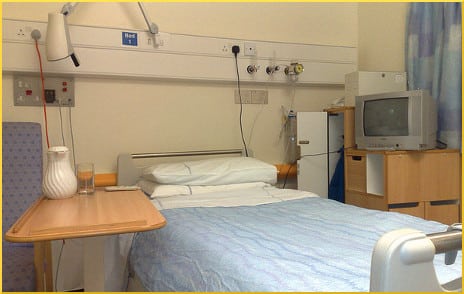 In his Huffington Post article, “Eating Addiction: There’s an App for That,” Dr. Pretlow gave weight-loss surgery a mixed review. On the one hand, he credits bariatric surgery with being the only obesity treatment that has resulted in “significant long-term weight loss.” Up until now, that is. Thanks in part to the intense media focus brought to childhood obesity in recent years, many research avenues are being explored.
In his Huffington Post article, “Eating Addiction: There’s an App for That,” Dr. Pretlow gave weight-loss surgery a mixed review. On the one hand, he credits bariatric surgery with being the only obesity treatment that has resulted in “significant long-term weight loss.” Up until now, that is. Thanks in part to the intense media focus brought to childhood obesity in recent years, many research avenues are being explored.
As for the disadvantages, Childhood Obesity News has discussed them before. The particular ones that Dr. Pretlow cites here are expense, risk (which, to be fair, has probably never been brought down to irreducible in any type of surgical procedure), and most daunting of all, the fact that between 20 and 30 percent of the patients do not ultimately benefit from the procedure.
It has become a truism in the field that severely obese teens are resistant to both lifestyle changes and medication, and that is why surgery works when it does. Still, psychological maturity is a recommended trait in surgical prospects. That quality is a lot to ask of teenagers, when so few adults seem to have attained it. People will eat right through the surgical rearrangements of their insides, or, even if they abstain from overeating, adopt another self-sabotaging addiction. There is no end to the mischief they can invent.
Some patients say they did not receive sufficient education or training on how to live in the appropriate post-op way. Maybe so, although it might be expected that a person would actively pursue knowledge and ask, “What must I do to assure that this procedure was not a total waste of time and money?” But they seldom do, especially teenagers. What patients mostly want is a fast-acting magic bullet, so they can quit thinking about the issue and get on with their lives.
All the more reason, incidentally, why assistive technology such as W8Loss2Go should be part of these individuals’ daily life resources. If 20 to 30 percent are failing to either lose weight or keep it off, they need all the help they can get.
The Risks of Bariatric Surgery
NBC’s Lindsey Tanner characterized surgery as a “drastic, last-ditch option” when discussing a study, funded by the National Institutes of Health, that included 242 morbidly obese adolescents who all had surgery at one of five participating medical centers. Tanner says:
Half the teens had at least four major illnesses linked with their excess weight. Three out of four had cholesterol problems; almost half had high blood pressure or joint pain; and many had diseased livers or kidneys…Major complications including accidental injury to internal organs occurred in just 8 percent of teens. Less serious complications including bleeding and dehydration affected 15 percent of kids during the first month after surgery.
Those misfortunes are easy to track, but the outcome is as yet unrevealed. If we are interested in knowing how those kids fare ten years down the line, we will have to wait to find out. However, it is already obvious that all over the world, more and more kids are precocious in a way that is not healthful.
Society is in a paradoxical situation. So much of our attention, in the form of both money and energy, is focused on how to delay aging. Ironically, at the same time, many things are going on that contribute to premature aging, in some cases freakishly so. Early puberty has become a “thing,” and so has its firm association with obesity. But that wasn’t bad enough. Now, teens are coming down with old folks’ diseases.
Your responses and feedback are welcome!
Source: “Eating Addiction: There’s an App for That,” HuffingtonPost.com, 09/11/15
Source: “Many health woes in teens seeking obesity surgery, study.” NBCNews.com, 11/04/13
Image by Mark Hillary

 FAQs and Media Requests:
FAQs and Media Requests: 











